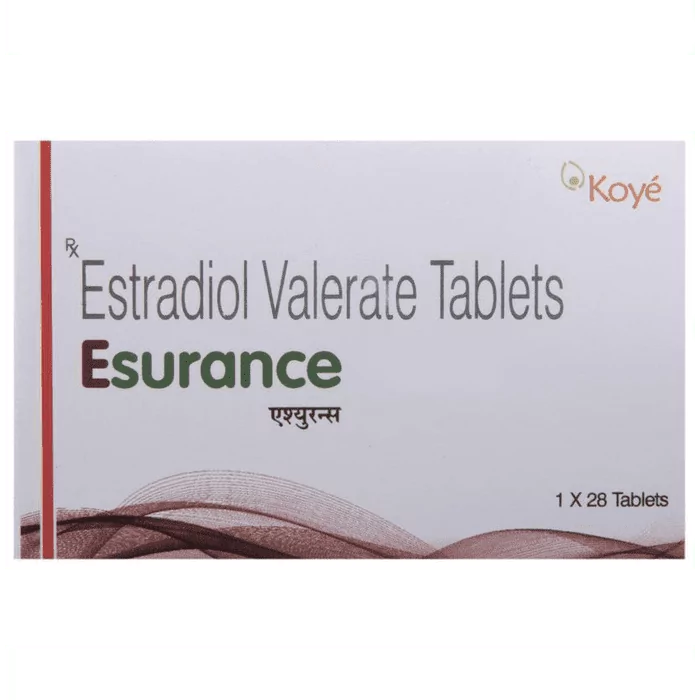Most women notice a decline in their libido or sex drive during their Menopause.
Menopause is a natural process that every woman goes through in their lifetime during their late 40s or early 50s.
The decline in libido often causes problems in their relationships and can also affect their mental health.
So, it is important to be aware of the factors that affect libido during Menopause.
This awareness can help individuals to seek proper treatment and develop management methods.
This article will discuss the link between Menopause and libido, its impact, and treatment options.
Link Between Menopause and Libido
According to research, Menopausal and post-menopausal women experience low libido due to hormonal changes around this phase.
During Menopause, the ovaries stop responding properly to the Follicular Stimulating Hormone (FSH).
It reduces the production of Estrogen and Progesterone during Menopause and increases the FSH levels.
The decrease in Estrogen levels ultimately reduces one’s sexual drive.
The decline in Estrogen also results in vaginal dryness, which can lead to painful intercourse, reducing one’s interest in sexual activities further.
Save up to 90% on your medicine bills

Progynova 2 mg

Oestrogel 2.5 gm / 1.5 mg

Estrabet 2 Tablet

Esurance Tablet
Impact of Low Libido During Menopause
 Source: doucefleur_From_Getty_images
Source: doucefleur_From_Getty_imagesSince low libido in women is very common in Menopausal women, it is important to learn how it can affect several aspects of one’s life.
A study states that with Menopause, women may face painful intercourse and have difficulty in reaching an orgasm.
Painful sex and difficulty getting an orgasm often result in sexless marriages in this phase.
This often creates marriage problems, causing anger towards husbands and not wanting to be touched.
In some cases, low libido can strain relationships to such an extent that it can lead to divorce during Menopause.
All these factors eventually lead to mental health problems, leading to stress, Anxiety, and Menopausal Depression.
Are you curious to learn more about the link between orgasm and Menopause? Read Can a Woman Have an Orgasm After Menopause? Stating Facts.
Managing Libido During Menopause
There are several methods to manage one’s libido during Menopause.
Making lifestyle modifications like exercising daily and maintaining a Menopausal diet can help women improve their hormonal balance.
Improving the hormonal balance can help individuals in enhancing their sex drive.
Doctors sometimes suggest using herbs like Black Cohosh or Dong Quai to improve Estrogen levels.
Another effective Menopause treatment to improve hormonal balance and libido is using Hormonal Replacement Therapy (HRT).
Additionally, experts may prescribe certain medications to improve this Menopause symptom further.
Conclusion
Menopause and libido are connected due to low Estrogen levels during this phase.
Low Estrogen reduces one’s sex drive and can cause vaginal dryness, leading to disinterest in sexual activities.
Low libido during this phase often leads to sexless marriages, leading to divorce in some cases.
It can highly affect one’s mental health, further causing Depression, stress, and Anxiety.
Doctors often suggest lifestyle changes, medications, and Hormonal Replacement Therapy (HRT) to treat low sex drive during Menopause.
It is always best to consult your doctor to get the best treatment based on your medical history.

Frequently Asked Questions
Can natural remedies alone increase libido during Menopause?
No, natural remedies alone cannot increase libido during Menopause. While remedies like herbs, supplements, and lifestyle changes can improve libido, they may not be effective for every woman.
Some individuals may gain results only from using combined treatments with their medications.
What are the other negative effects of Menopause?
Menopause can bring various negative effects, including hot flashes, severe mood swings, vaginal dryness, and sleep disturbances.
Additionally, it may increase the risk of Osteoporosis (thinning bones) and heart disease due to reducing Estrogen levels.
Does sex drive return after Menopause?
Yes, sex drive may return after Menopause for some women. This usually happens since the hormonal fluctuations become stable after Menopause.
However, some people may notice constant low libido due to stress and strained personal relationships.
How long does low libido remain in women after Menopause?
The duration of low libido after Menopause varies for each woman. For some, it can last indefinitely or improve over time.
This may depend on factors such as hormonal balance, overall health, relationship dynamics, and an individual’s lifestyle choices.
Is Hormonal Replacement Therapy (HRT) a safe treatment for libido during Menopause?
No, although Hormone Replacement Therapy (HRT) can effectively treat Menopause-related libido changes, safety concerns exist.
These concerns include increased risk of breast cancer, blood clots, and cardiovascular issues. So, it is always best to consult a doctor before choosing this treatment method.
Cheap Medicine Shop only refers to credible, authoritative sources for our content. If you’re curious about how we ensure the integrity of our content, we encourage you to read our Content Information Policy.














